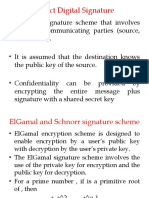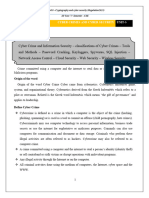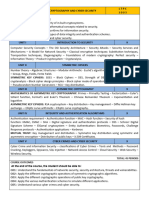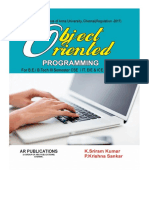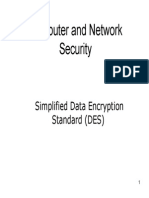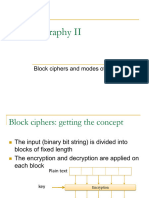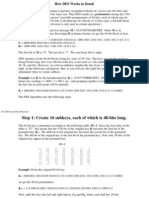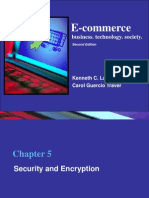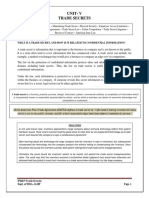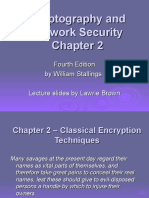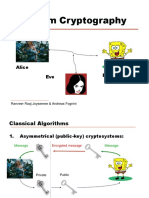0% found this document useful (0 votes)
600 views3 pagesApplied Cryptography Syllabus
This document outlines the curriculum for a course titled "Applied Cryptography" which introduces students to cryptography and cryptanalysis through 5 modules covering mathematical foundations, symmetric key ciphers, hash functions, digital signatures, and network security. The course aims to develop an understanding of cryptography algorithms and their design choices through lectures, labs involving experiments with cryptographic tools and protocols, and assessments of theory and practical skills.
Uploaded by
Alexander K SmithCopyright
© © All Rights Reserved
We take content rights seriously. If you suspect this is your content, claim it here.
Available Formats
Download as PDF, TXT or read online on Scribd
0% found this document useful (0 votes)
600 views3 pagesApplied Cryptography Syllabus
This document outlines the curriculum for a course titled "Applied Cryptography" which introduces students to cryptography and cryptanalysis through 5 modules covering mathematical foundations, symmetric key ciphers, hash functions, digital signatures, and network security. The course aims to develop an understanding of cryptography algorithms and their design choices through lectures, labs involving experiments with cryptographic tools and protocols, and assessments of theory and practical skills.
Uploaded by
Alexander K SmithCopyright
© © All Rights Reserved
We take content rights seriously. If you suspect this is your content, claim it here.
Available Formats
Download as PDF, TXT or read online on Scribd
/ 3



















